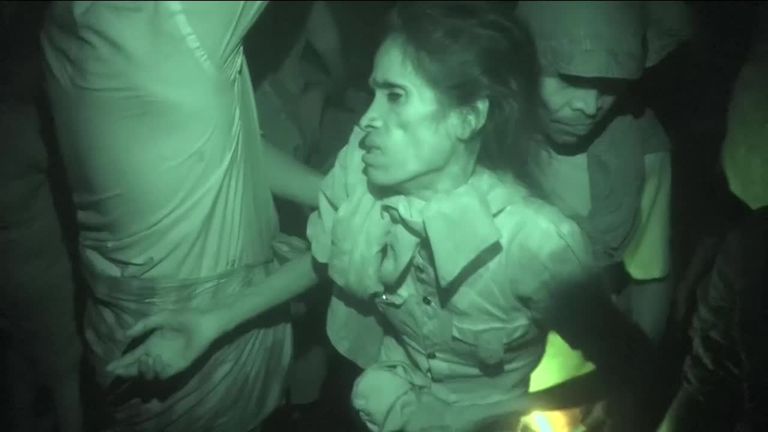Rohingya refugees in Cox's Bazar gripped by fear after spate of murders
One victim was stabbed 25 times on a busy road and another two were killed in their shacks just days apart by masked thugs.
Friday 17 August 2018 11:47, UK
A spate of killings in the Rohingya camps on the Bangladesh-Myanmar border have overstretched police trying to protect almost a million refugees.
Only 1,000 police officers are guarding the giant camps that are made up of a labyrinth of shanties and the authorities say they need to double the size of the force following the murders.
Among those killed are three respected community leaders in what police believe is a power struggle between Rohingya gangs around Cox's Bazar.
One of the victims was stabbed 25 times on a busy road in June and another two were killed in their shacks just days apart by masked thugs.
Police are investigating 21 refugee murders in the crime-ridden Cox's Bazar area in recent months which have been blamed on turf wars.
In 2017 aid agencies said almost 7,000 people had been killed and estimates this year put the figure at more than 10,000.
People living in the biggest refugee camp in Kutupalong say the out-of-control violence is leaving families vulnerable.
Runa Akter, 16, whose father disappeared in July with a relative, said: "When the gangs come into the camps, people call the police. But they only arrive after the criminals are gone."
She said police only began an investigation after her uncle's body had been found. She said: "We are scared. We are especially worried about my brother, because there have been threats to kidnap and kill him."
The Rohingya camps have long been a target of criminals and gangs but police say refugees with ties to Bangladeshi drug and human trafficking networks have sold Rohingya girls for sex and recruited mules to transport methamphetamine.
The problem has got worse since the army cracked down on Buddhist-dominated Myanmar and drove almost 700,000 of the stateless Muslim minority into Bangladesh in 2017.
Police have made hundreds of arrests since the August influx with people being charged with rape, drug offences and human trafficking.
Afruzul Haque Tutul, a senior police officer who until mid-August was deputy chief of Cox's Bazar, said gangs cashing in on the human misery were extorting "huge money" from new refugees desperate for land, shelter and food.
Mr Tutul said patrols had been increased but the force was spread thin.
Some 1,500 additional officers had been requested from Dhaka and Mr Tutul added: "Definitely it's a huge task. We are trying our best to control the area."
A community leader, who asked not to be named, said: "There are no police after midnight. Even during the day, during their shifts, they often stay in their posts."
Few officers speak the Rohingya language which makes investigating crimes against the refugees difficult.
Aid groups are installing floodlights to boost safety, especially for women, and police checkpoints are planned for vulnerable areas of the dense camps.





